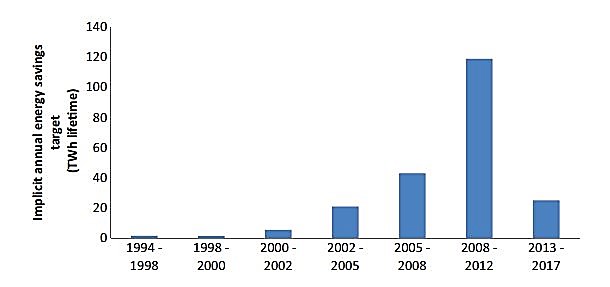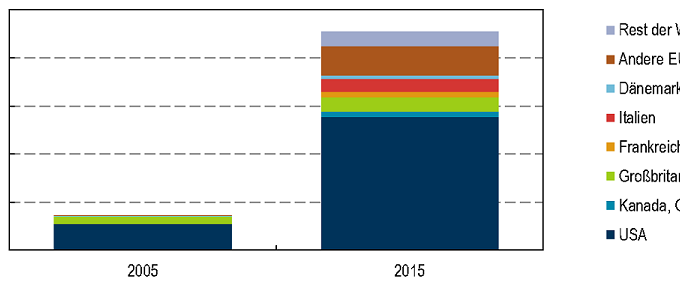
Knowledge Center
We believe that sharing our expertise and collaborations in clean energy policy is how real, effective change happens.
From reports and policy briefs, to webinars and podcasts—RAP advisors have built an extensive collection of resources providing in-depth analysis and practical solutions to today’s energy challenges.
Filter >>
Content Filter:
This report, the first of three volumes of Next-Generation Performance-Based Regulation: Emphasizing Utility Performance to Unleash Power Sector Innovation, examines the concept of performance-based regulation (PBR) and how it can provide a framework to connect goals, targets, and measures to… View Summary +

This report, the second of three volumes of Next-Generation Performance-Based Regulation: Emphasizing Utility Performance to Unleash Power Sector Innovation, focuses on best practices for design, development, and implementation of performance-based regulation mechanisms. It begins by laying the groundwork for understanding… View Summary +
This report, the final of three volumes of Next-Generation Performance-Based Regulation: Emphasizing Utility Performance to Unleash Power Sector Innovation, focuses on how performance-based regulation (PBR) can be used to navigate an era of rapid technological change in the power sector. View Summary +
The International Energy Agency reported in 2016 that energy efficiency is increasingly understood as a key component of low-carbon energy policy. The European Union encourages Member States to introduce energy efficiency obligation schemes (EEOS) to help meet energy savings objectives. View Summary +

Without bold energy efficiency policies, it will be impossible to reach the goals articulated in the Paris Agreement. This is the main finding of authors from the Regulatory Assistance Project, Öko-Institut, and Stefan Scheuer Consulting, who identified the impact of… View Summary +
Kanada ist ein rohstoffreiches Land und einer der größten Energieproduzenten und Exporteure der Welt. In diesem Gutachten analysieren die Autoren die kanadische Energiepolitik von der Energieeffizienz, über die Rohstoffförderung und die Strommärkte. Dabei beleuchten sie die Unterschiede und Parallelen zu… View Summary +
The UK’s energy policy is at a crossroads. Ambitious carbon targets, an ageing energy infrastructure, rising fuel poverty, and a legacy of fossil fuel investment warrant bold political decisions to ensure the UK transitions to a sustainable low-carbon energy system. View Summary +
Advanced technologies are unleashing the potential for change in power sectors around the globe, transforming the way electricity is generated, delivered, and consumed. These changes hold great promise for a better, cleaner, more reliable, and lower cost future. Whether the… View Summary +
In der Hälfte der US-Bundesstaaten, Südafrika und Brasilen sind Public Benefit Funds der maßgebliche Finanzierungsmechanismus für Energieeffizienz- und Erneuerbaren Energien-Investitionen. Dabei handelt es sich um eine regulatorisch festgesetzte, sehr geringe Umlage auf die verbrauchte Energieeinheit. Mit diesen Einnahmen werden die… View Summary +
Performance-based regulation (PBR) enables regulators to reform 100-year-old regulatory structures to unleash innovations within 21st century power systems. Our current electric system is built upon an old regulatory paradigm that ensured safe and reliable electricity at reasonable prices from capital-intensive… View Summary +
Energy efficiency plays a critical role in achieving the ambitious carbon reduction goals set out in the Paris Agreement. The International Energy Agency (IEA) created a model scenario, aligned with the Paris Agreement, which indicates that half of global emission… View Summary +
Eine vielversprechende Option zur konsequenten Förderung von Energieeffizienz sind sogenannte marktbasierte Instrumente. Darunter fallen wettbewerbliche Ausschreibungen, Auktionsmechanismen, Weiße Zertifikate und Energieeffizienzverpflichtungen. Dieses Briefing fasst die wesentlichen Ergebnisse einer Studie des Regulatory Assistance Project und der Internationalen Energieagentur (IEA) für die… View Summary +

In den USA gibt es auf Bundesebene keine expliziten Ziele, den Endenergieverbrauch oder den Einsatz fossiler Energieträger zukünftig zu begrenzen oder sogar zu senken. Nichtsdestotrotz wurden in den vergangenen Jahren und Jahrzenten viele Maßnahmen ergriffen, um die Energieeffizienz insbesondere in… View Summary +
One of the major energy efficiency strategies in the EU is a requirement that Member States establish energy efficiency obligation (EEO) schemes or alternative measures that would deliver a growing level of energy savings from measures delivered to end use… View Summary +
The European Commission’s so-called ‘Winter Package’ of energy legislation will provide the framework for energy policy in the European Union for many years to come. It contains proposals for a whole range of energy-related reforms including energy markets, energy infrastructure,… View Summary +

